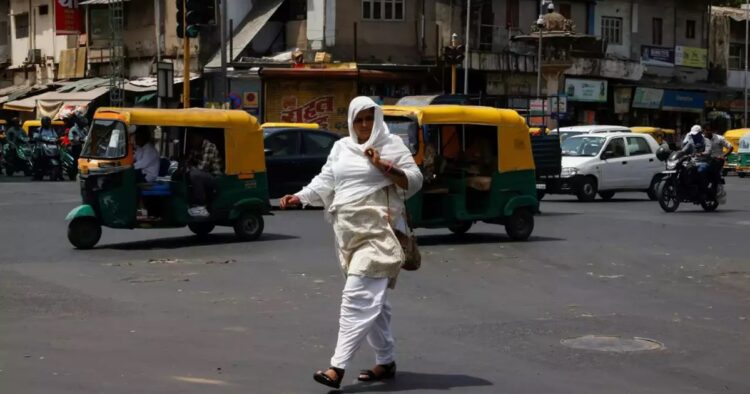A severe heatwave has struck many parts of India, leading to the deaths of at least 110 people and causing over 40,000 to suffer from suspected heatstroke between March 1 and June 18 this year. These figures were shared by sources from the Health Ministry on Thursday.
Uttar Pradesh is the most affected state, reporting 36 deaths, other states severely impacted include Bihar, Rajasthan, and Odisha. The data was collected under the National Heat-Related Illness and Death Surveillance by the National Centre for Disease Control (NCDC).
However, an official source mentioned that these numbers might be underreported and are expected to rise.
On June 18 alone, there were six deaths attributed to heatstroke. Northern and eastern India have been experiencing prolonged periods of extreme heat, which has increased heatstroke incidents. This situation has prompted the central government to advise hospitals to set up special units to manage patients suffering from heat-related illnesses.
Union Health Minister J.P. Nadda has instructed that special heatwave units be established in all central government hospitals. He also directed officials to ensure that hospitals are fully prepared to provide the best possible care for those affected by the heat. The Health Minister reviewed the national situation and hospital readiness to handle the crisis.
Following the Minister’s directions, the Health Ministry issued an advisory for the State Health Departments for the 2024 heatwave season. The advisory warns that the country is likely to experience above-normal temperatures this summer. It emphasizes the need for health departments to be prepared and respond promptly to reduce the health impacts of extreme heat.
State nodal officers under the National Programme for Climate Change and Human Health (NPCCHH) have been asked to submit daily reports on heatstroke cases and deaths starting from March 1. They must also maintain a digital record of these cases at health facilities and hospitals.
The advisory calls for the National Action Plan on Heat-Related Illnesses (HRI) to be distributed to all districts. It stresses the importance of early warning dissemination of heatwaves, as forecasted by the India Meteorological Department (IMD). Health facilities and vulnerable populations should receive forecasts for the next four days to ensure timely preparedness.
Hospitals are instructed to prepare for the prevention and management of severe HRI cases. This includes procuring and supplying adequate quantities of oral rehydration solutions (ORS), essential medicines, IV fluids, ice packs, and equipment to manage dehydration and electrolyte imbalance. Hospitals must also ensure sufficient drinking water and cooling appliances in waiting and treatment areas.
ALSO READ: “IMD Predicts Light to Moderate Rain for Delhi NCR: Relief from Scorching Heat Expected”
The advisory suggests that hospitals coordinate with electricity providers to ensure uninterrupted power supply for cooling appliances. Measures to reduce indoor heat and conserve energy, such as installing cool roofs, window shading, rainwater harvesting, and solar panels, are recommended. Additionally, hospitals in heat-prone regions should provide shade outside their facilities.
The unrelenting heatwave continues to pose significant health risks across India, and the government is taking measures to mitigate its impact on the population.

















Comments